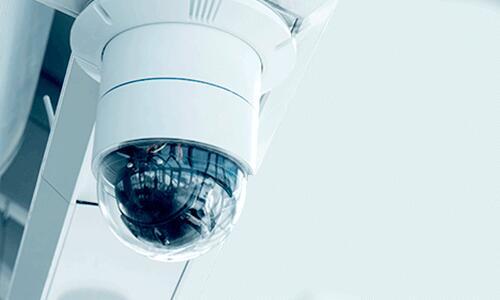Technology can deliver a safe and secure environment for travelers, guests, and employees and help reinvigorate the hospitality industry.
As mentioned in our previous blog on reinventing the hospitality industry, providing a safe and secure environment will be essential to the industry’s re-opening.
Whether it is in compliance with local regulations, or a decision taken by the hoteliers, as we emerge from the 2020 health crisis the hospitality industry will need to implement security measures to create a safe environment for travelers, guests and staff. Along with stringent and regular disinfection routines, we will no doubt become familiar with new devices and procedures, such as thermal imaging cameras, facial recognition applications, and capacity control systems in hotel lobbies.

The Alcatel-Lucent Enterprise Digital Age Networking solution supports deployment and integration of the technology the hospitality industry needs to prevent cybersecurity breaches and ensure a safe and secure environment for everyone. As a key the pillar of Digital Age Networking, IoT Digital Business provides automatic and secure onboarding and management of IoT devices such as the IP cameras required by security systems. Additionally, ALE network interoperability along with API openness capabilities provides easy integration with all types of third party solutions to create a rich ecosystem of vertical solutions within the network infrastructure. An example of this is our partner Zoox Technologies, who in addition to offering a smart Wi-Fi captive portal and analytics, offers an innovative facial recognition solution enabling faster and safer access to physical spaces. As well, Mobotix thermal imaging cameras have recently been added to the ALE partner ecosystem.
Other more traditional security systems, such as video surveillance, are likely to expand as well in the face of the global health crisis. In addition to improving security and deterring criminal activity, the presence of video surveillance also can help make people more aware about maintaining social distances and avoiding crowding, as well as improve security personnel response times in dangerous situations.

ALE networks provide state-of-the-art network standards, UDP multicast IP protocols and Shortest Path Bridging (SPB), to ensure the best performance and quality for video surveillance deployments. SPB with minimal convergence time (sub-100 milliseconds) is the technology of choice for video deployments to ensure consistent and high video quality, even in network outages. To guarantee the necessary bandwidth and network resources, the ALE network portfolio includes high-performance network switches that provide high port density and switching capacity. In the video surveillance arena, ALE networks have demonstrated excellent performance in real field deployments with expert video partners, such as BCDVideo in North America.
While video surveillance delivers both passive and reactive security, location services can provide the intelligence required to engage more proactively. Until now one of the main benefits of indoor location services has been providing analytics about the movement of people that could be used to improve marketing plans and grow businesses. Today these analytics offer new, significant value in the design of effective mobility and emergency planning.
As part of the network solution offering ALE provides indoor location-based services, under the Alcatel-Lucent OmniAccess® Stellar Location-based Services (LBS) portfolio. For hospitality businesses with a large flow of visitors, such as casinos, shopping malls, convention centers, museums and sports centers, OmniAccess Stellar LBS analytics can collect relevant information for the design of secure mobility plans. This includes the number of visitors per hour of the day and day of the week, or the average duration of visit per building or per logical zone. These metrics provide key information about peak hours and frequented areas.

All of these security solutions, from the most innovative thermal imaging cameras and facial recognition, to emerging location-based services, as well as traditional video surveillance will ensure a safer environment, helping hotels and other hospitality related services to reinvigorate business, re-engage customers and stay ahead of the competition.
Take a deeper look at what the hospitality industry will need to do to re-design the guest journey in our next blog.
Latest Blogs

Supply chain resilience and business adaptability
Strategic supply chain resilience and business adaptability to thrive in the face of adversity

Solve education challenges with a modern campus network
A modern campus network helps streamline operations, reduce costs, and offers a safe and caring place to work and study.

Revitalise education with a modern campus network
A modern, campus-wide network upgrade aligns capabilities with academic, research and business priorities today and tomorrow.

Education today: Why modernising campus networks is a must
Educational institutions worldwide must modernise their networks to meet today’s new requirements.

